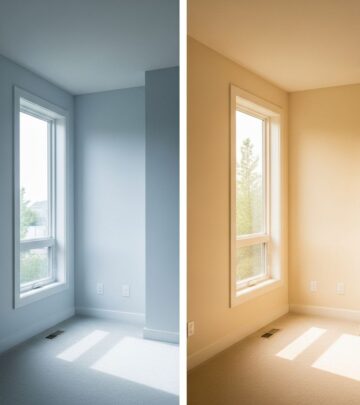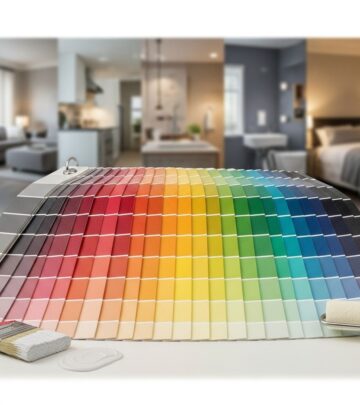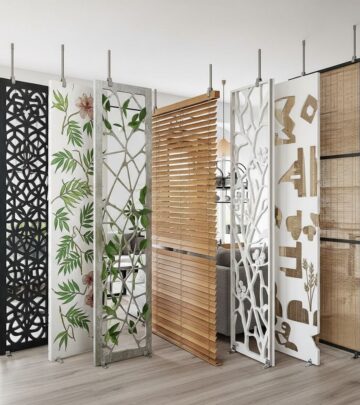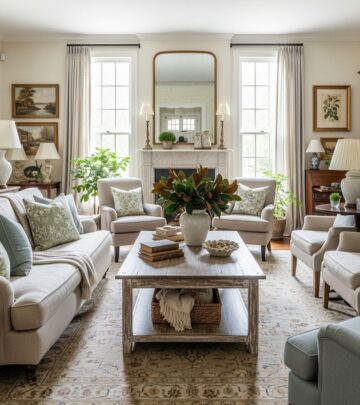What Is a Duplex Home? Essential Facts, Benefits & Buyer Tips
Two-unit designs offer autonomy for each household while generating extra income.
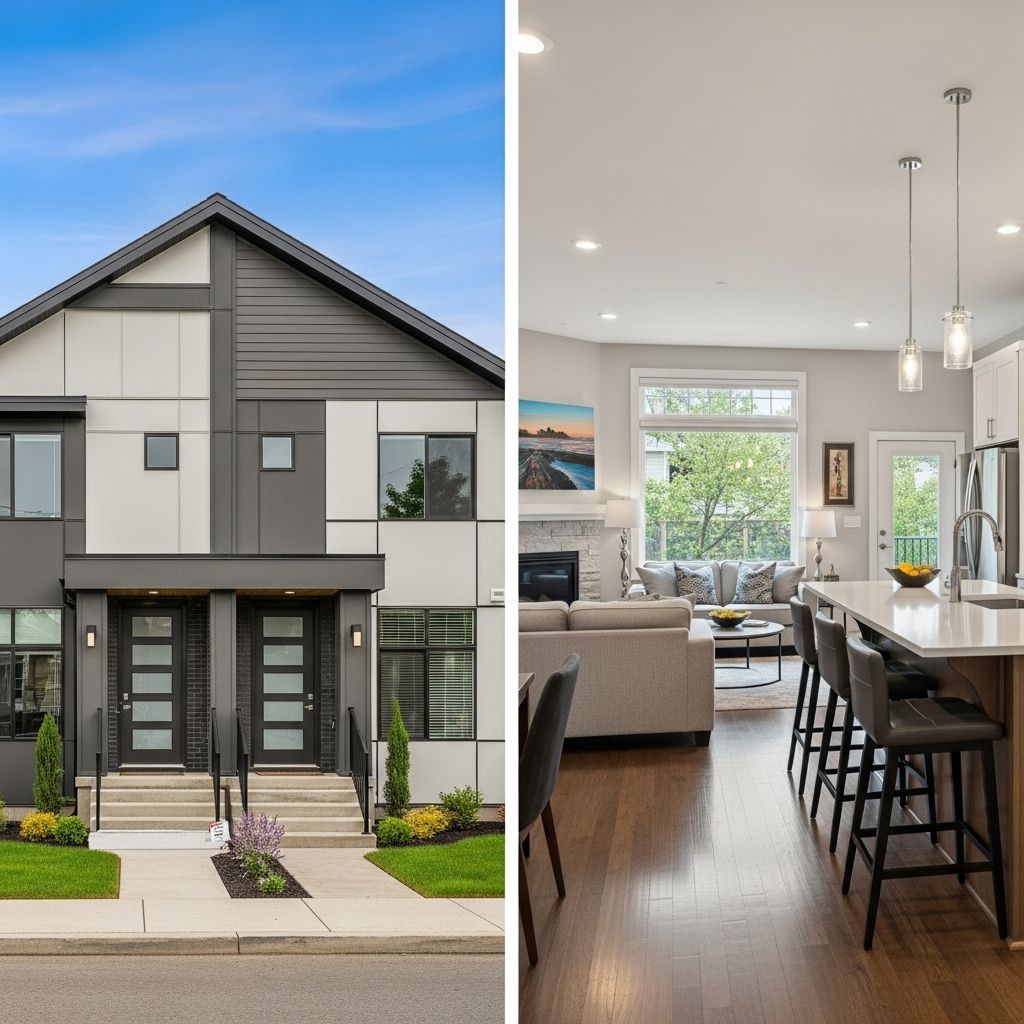
What Is a Duplex Home?
A duplex home refers to a residential building divided into two separate living units. These units are typically either side-by-side or stacked one above the other, each enjoying its own private entrance, living spaces, kitchen, and often utilities. Duplexes offer a unique blend of privacy similar to single-family homes, paired with the practical advantages of multi-family residences.
Duplex Home Architecture and Layouts
The architectural design of duplexes centers on providing distinct, self-contained campuses for each family, ensuring that daily activities remain separated. There are two primary layouts:
- Side-by-Side Duplex: The units are constructed next to each other, each stretching from the front to the back of the building.
- Stacked Duplex: One unit occupies the ground floor, and the other sits directly above, on the second floor.
Each layout offers both units their own entrance, which may be positioned in front, on the sides, or even at the back if privacy is prioritized. Occasionally, a duplex features a shared entryway or foyer before branching off to respective apartments, particularly in urban settings.
Key Characteristics of Duplex Homes
- Two separate units: Each with a kitchen, bathroom, bedrooms, and living areas.
- Private or shared outdoor space: Includes a yard, driveway, or patio; sometimes fenced or divided.
- Independent utilities: Often each unit has separate utility meters for direct billing.
- Neighborhood context: Duplexes are found in both suburban communities and urban neighborhoods.
Duplex vs. Other Housing Types
| Type | Number of Units | Ownership Structure | Privacy Level |
|---|---|---|---|
| Duplex | 2 | Both units typically owned by one party or can be split | High (each unit is self-contained) |
| Townhouse | 2 or more | Each unit individually owned | Moderate to High |
| Apartment | Multiple | Single owner (rental) or condos (unit ownership) | Medium |
| Condominium | Multiple | Individual ownership of units; shared building | Variable |
This comparison highlights that duplexes are more private than apartments or condos but offer less independence than detached single-family homes.
Advantages of Duplex Homes
Duplexes present several notable benefits, both for buyers and investors:
- Rental Income Potential: Owners can occupy one unit while renting out the other, reducing mortgage costs and boosting investment returns.
- Multi-generational Living: Families can reside close, yet independently—perfect for older parents, adult children, or extended relatives.
- Reduced Living Costs: Shared maintenance, insurance, and property taxes may lower overall housing expenses.
- Flexible Ownership: Duplexes can be sold as single properties or, in some cases, subdivided into condominiums.
- Control over tenants and neighbors: Owners directly select renters for the second unit, fostering a sense of security and community.
Potential Challenges of Duplex Living
Despite their benefits, duplexes also pose a few drawbacks:
- Noise transfer: Shared walls or floors mean sound may travel between units.
- Shared maintenance responsibilities: Exterior upkeep, yard care, and repairs may require coordination if owned by separate parties.
- Potential zoning limitations: Not all neighborhoods permit duplexes; local laws may affect rental possibilities and exterior modifications.
- Resale Market: Duplexes appeal primarily to investors or multi-generational buyers, which can slightly narrow resale opportunities.
Duplex Home Ownership Options
Depending on your goals and local real estate rules, duplexes can be acquired in several ways:
- Owner-Occupied: Live in one unit and rent the other for supplemental income.
- Full Rental Investment: Lease both units to tenants for maximum revenue.
- Split Ownership: In rare cases, a duplex may be legally divided so each unit has a separate deed and owner.
Confirm with your agent and review relevant homeowner association (HOA) and city zoning rules before purchasing, as these impact rental policies, modifications, and resale.
Costs of Buying and Maintaining a Duplex
Duplex purchase prices typically reflect the value of two similar single-family units combined, but buyers may realize long-term savings if one unit is rented. Key cost elements include:
- Purchase price: May be higher than single-family properties but offset by rental income.
- Insurance: Usually calculated based on property value and occupancy (owner versus tenant).
- Taxes: Property taxes may be greater due to dual occupancy or local taxation on multi-family properties.
- Maintenance: Yard work, roof repairs, and exterior updates may be shared or shouldered by the owner.
- Upfront costs: Duplexes may require larger down payments, depending on financing type and lender criteria.
Duplex Investments: Tips for Buyers
If you’re considering buying a duplex, keep these expert guidelines in mind:
- Research zoning laws: Ensure the property is approved for multi-family use and rentals.
- Evaluate rental potential: Consider market rents, vacancy rates, and neighborhood desirability.
- Inspect thoroughly: Pay special attention to shared walls, sound insulation, roof condition, and separate utility meters.
- Understand HOA rules: Some duplexes are part of an HOA, which may limit rentals or exterior changes.
- Plan for property management: If you rent out one or both units, decide if you’ll self-manage or hire help.
Consulting with a real estate agent knowledgeable in duplex homes and local market trends can greatly streamline your search and acquisition plan.
Is a Duplex Right for You?
Duplexes suit a variety of lifestyles and financial goals. They’re excellent for:
- First-time buyers seeking rental income.
- Homeowners who want proximity with family but also privacy.
- Real estate investors looking for steady multi-family rental revenue.
If you value flexibility, privacy, and an income-generating asset, a duplex may be your ideal home type. However, be prepared for the responsibilities that come with managing property and tenants.
Frequently Asked Questions About Duplex Homes
Q: What’s the difference between a duplex and a townhouse?
A duplex consists of two units in one building, often with one owner. Townhouses are attached homes, usually in a row, and each is individually owned.
Q: Can I buy a duplex and only live in one side?
Yes, it’s common for owners to occupy one unit and rent the other, benefiting from additional rental income.
Q: Do duplexes share utility meters?
Modern duplexes often feature separate meters for water, electricity, and gas. Some older properties may share certain services.
Q: Is it hard to sell a duplex?
Duplexes may take longer to sell than single-family homes, as they appeal to a more niche market—primarily investors or families needing extra space.
Q: Are duplexes good investments?
In the right market, duplexes offer reliable income and strong appreciation, but local demand, taxes, and regulations affect profitability.
Top 5 Tips When Moving Into a Duplex
- Clarify maintenance roles: Define responsibilities for yard care, repairs, and shared facilities upfront.
- Soundproofing: If you’re renovating, invest in additional insulation between units.
- Know your neighbors: Whether as tenants or co-owners, positive relationships enhance daily living.
- Check local ordinances: Understand regulations about renting out or modifying your duplex.
- Consider future flexibility: Choose a layout and location that will meet evolving family or investment needs.
Conclusion: The Duplex Home Advantage
Duplex homes merge the convenience of shared infrastructure with the autonomy of private living spaces, offering a compelling alternative to traditional family houses or apartment buildings. Their greatest strength lies in their flexibility—suitable for investors, growing families, or those seeking to offset housing costs. Understanding architecture, costs, pros and cons, and neighborhood zoning lays the groundwork for a successful duplex experience. With expert guidance and careful planning, you can maximize the financial and lifestyle opportunities a duplex provides.
References
- https://www.youtube.com/playlist?list=PLlY2wRjGOQa2RAwzzvU5UJcU5EpVcU3JQ
- https://www.zinio.com/publications/better-homes-and-gardens/1478/issues/681941/articles
- https://archive.bhg.com/issue/1923/3/
- https://www.bhgre.com/bhgrelife/
- https://www.har.com/better-homes-and-gardens-real-estate-gary-greene—the-woodlands/broker_GGPR08
Read full bio of medha deb


